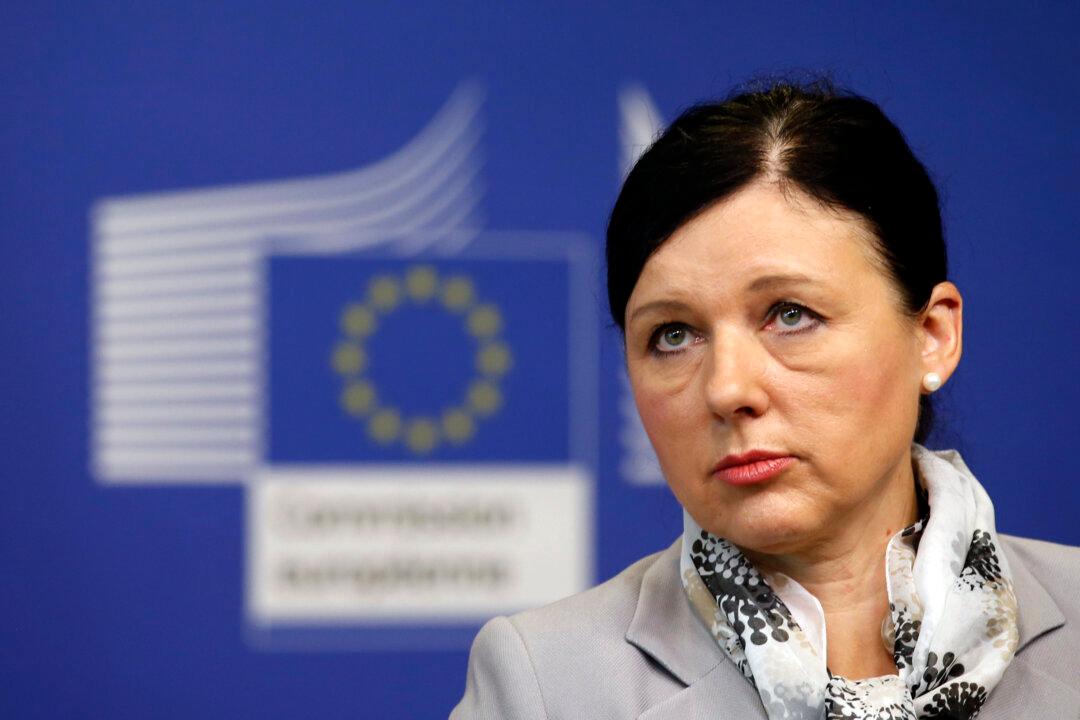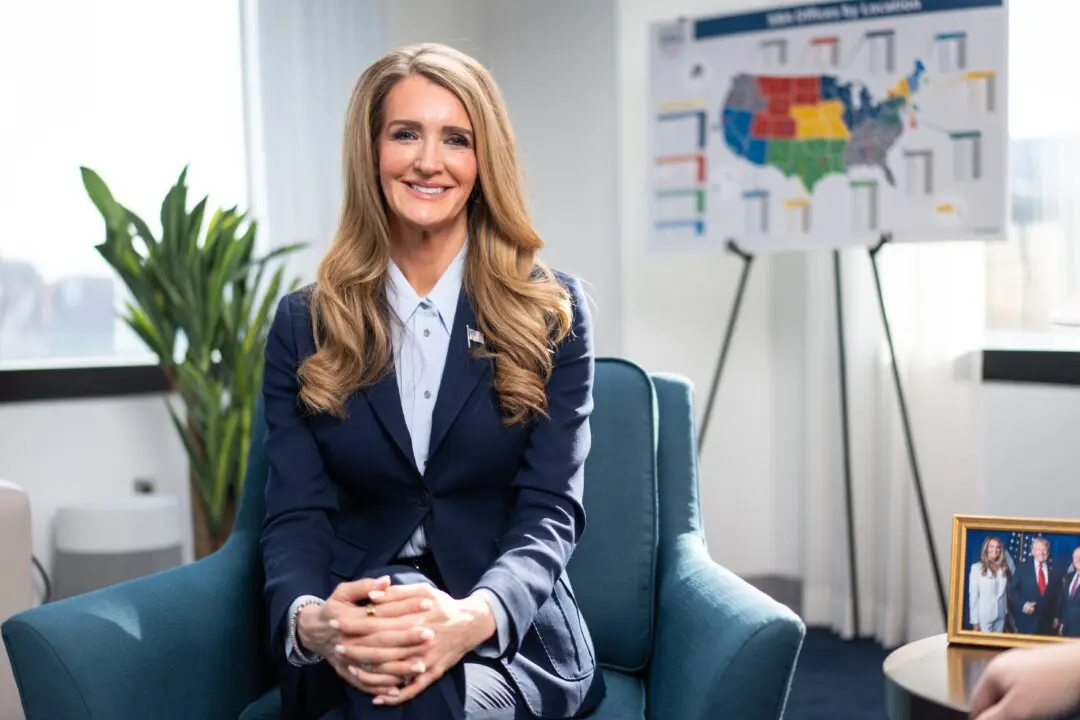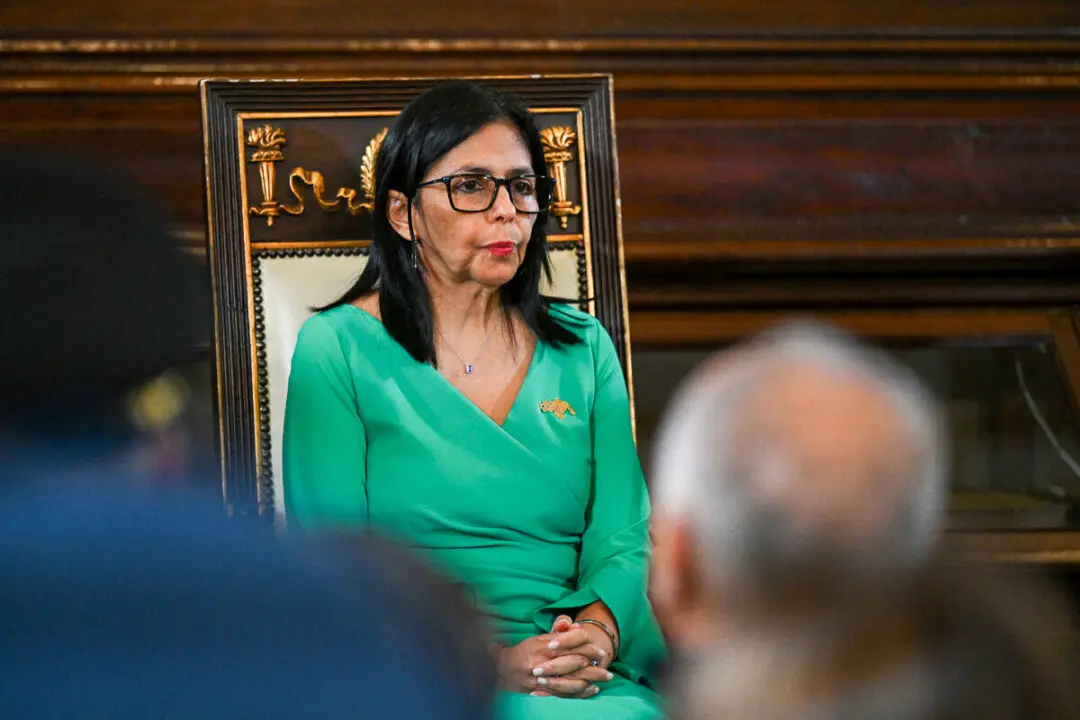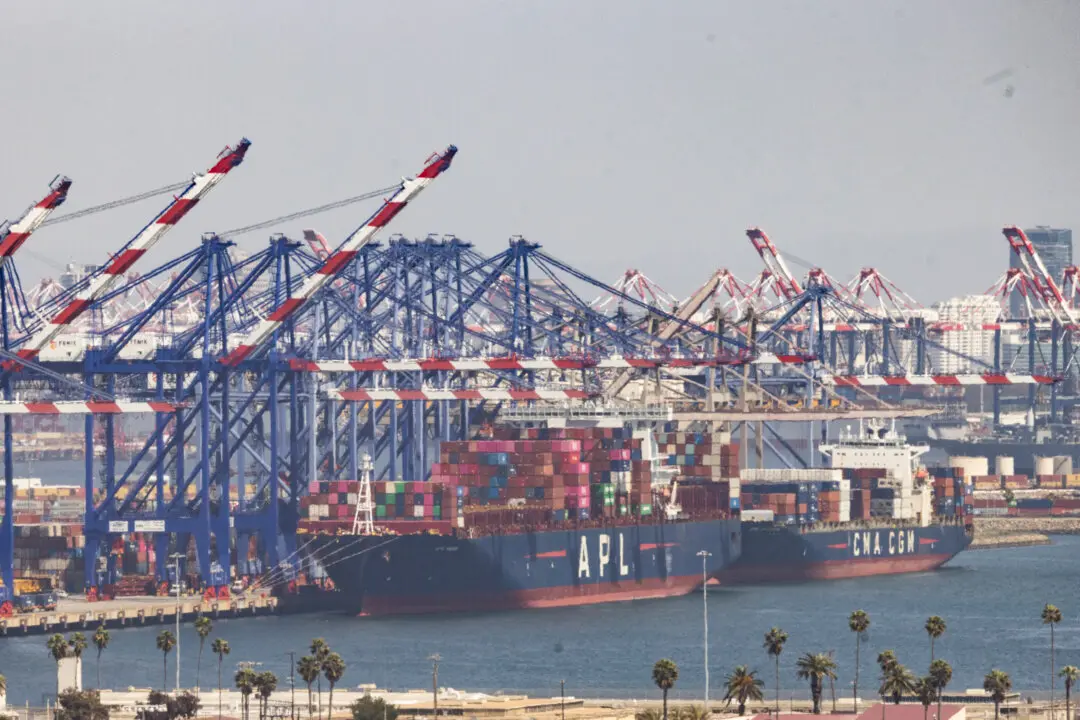Multiple participants at the ongoing annual World Economic Forum (WEF) meeting in Davos, Switzerland, suggested instituting free speech limitations as a way to deal with alleged hate speech and the continuing polarization of opinions.
While speaking at “The Clear and Present Danger of Disinformation” panel, Vera Jourova, vice president for values and transparency at the European Commission, pushed for containing free speech rights on the continent by citing the need to control hate speech, and predicted the United States would follow suit with similar anti-constitutional speech regulatory measures.





